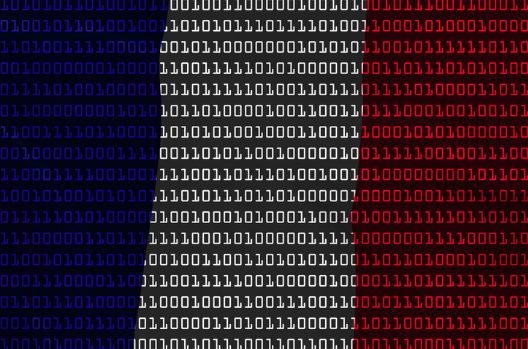France Gives Google the Guillotine
November 23, 2018 | Expert Insights

The French Ministry of the Armed Forces last month said that they will no longer use Google’s search engine as default, but instead use a French search engine called Qwant as it doesn’t exploit user data. This is a new initiative by the French government to bolster digital sovereignty in the country.
Background
In 2013, American whistleblower Edward Snowden revealed that the NSA was spying on foreign leaders and had the capability to access data stocked on private companies’ clouds. These foreign leaders included the last three French presidents, François Hollande, Jacques Chirac, and Nicolas Sarkozy. A Senate reported that same year France and the European Union were becoming “digital colonies”, a term that since then has been used by French government officials and analysts to alert about the threat posed by the US and China, on issues of economic, political and technological sovereignty.
Technological or “digital sovereignty” is a country’s push to regain control over their own and their citizens’ data. Militarily, it includes the ability for a state to develop cybersecurity offensive and defensive capabilities without relying on foreign-made technology; on the economic side, it encompasses issues spanning from taxation and subsidies of technological powerhouses to the creation of homegrown startups.
Recent scandals, including the Cambridge Analytica-Facebook imbroglio, further shook French public opinion and made politicians realise that digital sovereignty was a significant political issue.
Qwant is a French company that was founded by security specialist Éric Leandri, investor Jean Manuel Rozan and search-engine expert Patrick Constant in 2011. It launched its eponymous web search engine in July 2013. It claims not to employ user tracking, and it doesn't personalize search results in order to avoid trapping users in a filter bubble. The website processes well over 10 million search requests per day and over 50 million individual users a month worldwide.
Analysis
The French National Assembly and the French Army Ministry declared that their digital devices would use Qwant as their default search engines. Qwant is a French and German search engine that prides itself for not tracking its users.
French politicians have been taking an increasingly belligerent stance on technology. Just days before the Qwant decision, France’s secretary of state for digital affairs, Mounir Mahjoubi, had thundered against the United States’ Cloud Act, a new law that would allow the US to access data stocked on American companies’ clouds wherever they are located in the world. He said France was already preparing a response with other European states to “weigh in” on the issue.
French president Emmanuel Macron has been particularly vocal about reclaiming France’s independence from foreign technology companies, especially on matters of data protection, showing opposition to domineering American and Chinese companies and their government’s policies on digital issues. Most recently, at the Internet Governance Forum, Macron called for stronger rules to preserve citizens’ privacy, safety, and access to the internet.
“If we don’t regulate the internet, the risk is to upset the fundamentals of democracy,” said Macron on 12 November. “If we don’t regulate [companies’] relations to data, the rights our citizens have on their own data, their access and sharing, what is the point of democratically elected government?”
To fight the battle over its digital sovereignty, France has turned to regulation. In 2008, to protect its own data and critical national infrastructures, France established a defensive agency, ANSSI, responsible for computer security. A few years after its creation, ANSSI’s work led to a cybersecurity law on “sensitive national actors”, which was implemented in 2013 and later served as a model for the 2016 European Network and Information Security (NIS) directive. With this law, France established stricter cybersecurity standards for firms and state agencies that are critical to the functioning of the country.
That has not always worked smoothly: in 2016, the DGSI, one of France’s intelligence agencies, was criticised for using software by American firm Palantir, famously a contractor of the NSA, to handle some of its data. Following that controversy, ANSSI started working with other ministries and French private firms to build an alternative software to Palantir, and develop alternative strategies for clouds, which are often hosted on servers outside of the European Union, to be able to keep data within the European Union and analyse them without fear they could be accessed by foreign companies or states. A French alternative to Palantir, ARTEMIS, has been in the works since 2017 and is expected to have the first version by the end of 2019.
Assessment
Our assessment is that efforts to fortify the digital landscape of a nation are an essential aspect of national security in the present time. We believe that for France, focusing solely on French digital sovereignty falls short; coordination and cooperation of all European countries could lead to stronger and more efficient solutions, especially given the interdependence of the European Union’s member states.








Comments